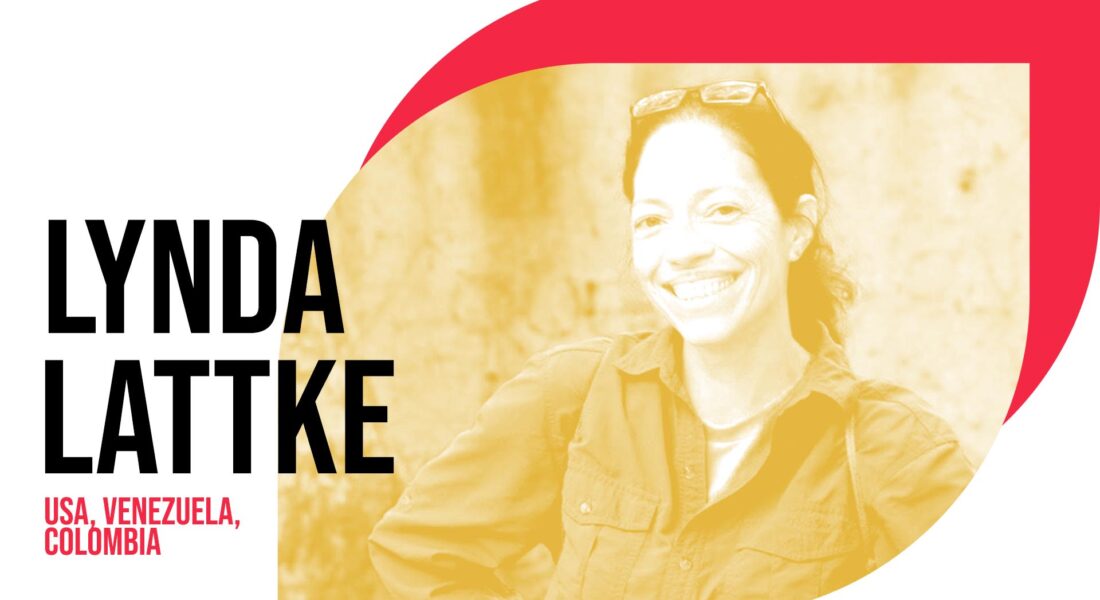
Amid people of different nationalities, I finally began to feel a beating heart!
Lynda has been in Italy for almost 14 years. Her first Italian city was Pisa and since 2017 she has lived in Turin.
When asked about her country of origin, although she describes herself as “strongly American in many ways,” she says she feels like a citizen of the world and that cultural diversity is the lifeblood for her.
She speaks three languages fluently: Spanish, English, and Italian; and a little French she learned while living in Niger from 1995 to 1998. Eternally torn between her passion for medicine (she would have liked to be part of Doctors Without Borders) and her love for journalism, she decided instead to pursue a degree in Urban Anthropology at Boston University and then a master’s degree in Public Health, during her role as a volunteer with the U.S. Peace Corps. Her language skills reflect the three countries that shaped her growing up: the United States, where she remained until she was six years old; Colombia, where her parents are from; and Venezuela, where she lived during her youth.
In her early twenties, she wished to become a doctor but could not study in Venezuela because of the constant strikes, she returned alone to the United States, thus upsetting the family dynamics, as she is the youngest of three children.
She arrived in Italy (in Pisa) in 2009 following her Italian-American husband, who loved his home country very much, and wished to bring back home the knowledge he had acquired abroad.
One of the first difficulties Lynda encountered concerned language use. Although her friendship with her future fiancé stemmed from the very purpose of passing on each other’s languages of origin, learning Italian came about mainly through attending special courses and with the contribution of a “fantastic teacher”. Through the Italian courses, she was also able to make new acquaintances and “amid people of different nationalities, I finally began to feel a beating heart!”
Among the negative aspects, she then recalls her impatience with the negligent attitude of some dog owners and motorists toward pedestrians and bicyclists.
In our country, the work environment also held some difficulties for her. Both in the United States and in England, Lynda served in counseling offices as a consultant on sex education.
Upon arriving in Pisa, she encountered the “tortuousness” of the paperwork for the recognition of her degrees, and finally after 5 years, she managed to find a job where she could use some of her skills: the University of Pisa’s Office of Internationalization welcomed thanks to her languages and professional experience abroad.
In September 2017, she moved with her family to Turin, where she came in contact with the Department of Psychology at the University of Turin and learned about the possibility of doing an Interdisciplinary Doctorate between the Departments of Psychology, Education Sciences and Anthropology, to which she then applied, a path she is now completing.
Her scientific-cultural contribution is, in line with the object of her research, to bring attention to a social-emotional approach in the school setting to promote well-being through a common understanding among all those involved (principals, teachers, students, and parents), so as to develop a common sense of respect, well-being, listening and inclusion.
Today Lynda admits that Italy – which at first seemed “too homogeneous,” making her feel the need for cultural diversity – a country with so much potential, where the inhabitants have a big heart: “They just need to open up more to new ideas and new people”. Sometimes she is called “strange” because in speaking she changes language depending on what she feels at the time, but “… it is a spontaneity that I do not want to lose, however, I want to be recognized for my ideas and not because I speak multiple languages!!!”


